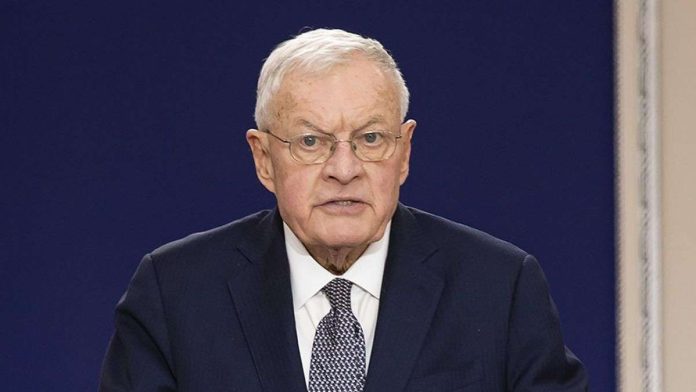Скандал навколо інтерпретації слів спеціального посланця президента США Дональда Трампа Кіта Келлога вибухнув після публікації у виданні The Times, де зазначалося, що у рамках потенційної мирної угоди Україна може бути поділена на зони контролю за аналогією з поділом Берліна у 1945 році. У статті стверджувалося, що Келлог допускає варіант, за якого союзні сили Великої Британії та Франції перебуватимуть на заході України, російські — на сході, а між ними стоятиме українська армія.
Однак сам Келлог категорично відкинув подібну інтерпретацію. У п’ятницю, 11 квітня, у своєму дописі в соцмережі Х (колишній Twitter) він заявив, що The Times спотворила його слова.
«Стаття The Times спотворила те, що я сказав. Я говорив про “сили підтримки миру” після припинення вогню на підтримку суверенітету України. В обговореннях “поділу” я мав на увазі зони відповідальності для союзних сил (без американських військ). Я **не мав на увазі розділ України» — написав Келлог.
Зі слів генерала, мова йде про можливу присутність багатонаціонального контингенту після досягнення домовленостей про припинення вогню. Сили підтримки миру, зокрема військові підрозділи Великої Британії, Франції та інших союзників, можуть бути розміщені на частині української території виключно з метою гарантування дотримання умов угоди — подібно до миротворчих місій ООН чи НАТО в інших конфліктах.
Цей підхід, за словами Келлога, має створити буфер без залучення американських військ і забезпечити присутність міжнародної коаліції, яка б унеможливила поновлення агресії з боку Росії.
Раніше британське видання The Times повідомило, що за одним із можливих сценаріїв, який нібито обговорювався американською стороною, Україну можуть «поділити» на зони впливу — захід під контролем союзників, схід — під контролем Росії, а між ними перебуватимуть ЗСУ. Такий формат дійсно викликає аналогії з післявоєнним Берліном, поділеним між чотирма державами-переможцями, що згодом призвело до виникнення НДР і ФРН.
Проте у випадку з Україною, подібна інтерпретація викликала хвилю критики і занепокоєння. В українських і міжнародних колах заговорили про ризики легалізації російської окупації та потенційної втрати територіальної цілісності.
Келлог спробував розвіяти ці страхи, наголосивши, що його слова стосувалися тимчасового механізму міжнародного контролю, а не переділу країни.


